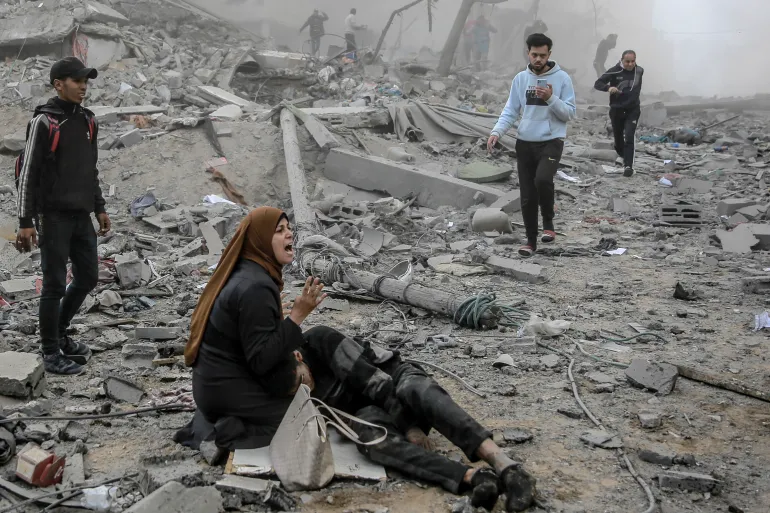In the midst of an ongoing genocide in Gaza, it is crucial that we refuse to remain silent and instead bring attention to the plight of Palestine and its people. However, there are individuals and organizations who are working tirelessly to suppress this important conversation. The BBC, for instance, has been criticized for showcasing images of Palestinian suffering, with some arguing that it takes a biased stance by highlighting their struggles. This attempt to silence the truth is not surprising, as censorship has always been a tool used to aid and abet genocide.
Foreign journalists are being denied access to Gaza to cover the ongoing atrocities, while Palestinian journalists who risk their lives to shed light on the reality of the situation face targeted attacks from Israel. Even journalists thousands of miles away are being punished for daring to speak out. Antoinette Lattouf, a presenter for the Australian Broadcasting Corporation, was fired for sharing a Human Rights Watch post that accused Israel of using starvation as a weapon of war. Despite the fact that the claim was supported by the United Nations, Lattouf was accused of anti-Semitism and bias. This blatant censorship only serves to perpetuate the suffering of Palestinians.
Teachers and university professors who show solidarity with Palestine have also been silenced. An Israeli teacher was fired and arrested for criticizing Israel’s military actions, while a Palestinian professor was suspended for speaking out against Israel’s war on Gaza. This suppression of critical voices is not limited to Israel alone. In the United States, educators have faced consequences for discussing the genocide in Palestine. This censorship extends even to politicians and civil servants who dare to support Palestine. An Israeli member of parliament faced accusations of treason and expulsion from the Knesset for supporting South Africa’s genocide case against Israel, while a member of the Provincial Parliament of Ontario was forced to apologize after calling for a ceasefire in Gaza and an end to Israel’s occupation and apartheid.
The efforts to silence and intimidate those who speak out against Israel’s genocide in Gaza are distressing but not surprising. Throughout history, censorship has often paved the way for mass atrocities and genocide. In Slobodan Milosevic’s Yugoslavia, independent publications and media outlets were suppressed and censored for daring to speak out against the atrocities committed by Serbs. Similarly, China’s campaign against Uighurs and other Turkic Muslims in Xinjiang was accompanied by internet shutdowns, imprisonment of website founders, and extreme social media surveillance.
Censorship and suppression of free speech were also key characteristics of the Nazi Holocaust. The Nazis controlled every news item and banned opposition newspapers, preventing the international community from learning about the extent of their atrocities until after World War II. Now, another genocide is unfolding in Gaza, and censorship is once again being employed to hide the reality of the situation.
In the age of social media and camera phones, it is harder for those committing genocide to hide their actions. However, efforts to silence journalists, academics, politicians, and activists who stand with Palestine persist. It is our collective responsibility to ensure that the world hears the truth about Palestine and its people. We must continue to insert “Palestine” and “Palestinians” into every conversation, every article, and every discussion. By learning from history and refusing to be silenced, we can hope to put an end to this genocide.




